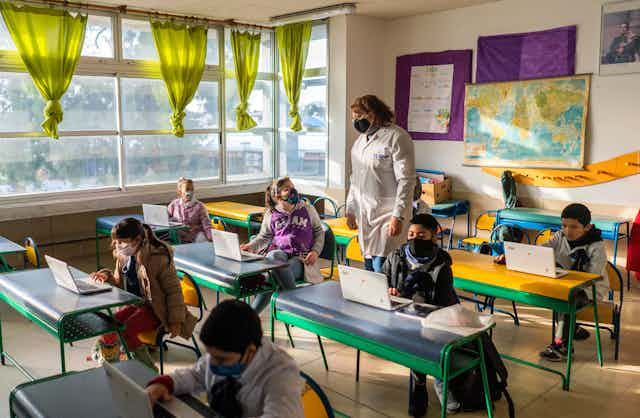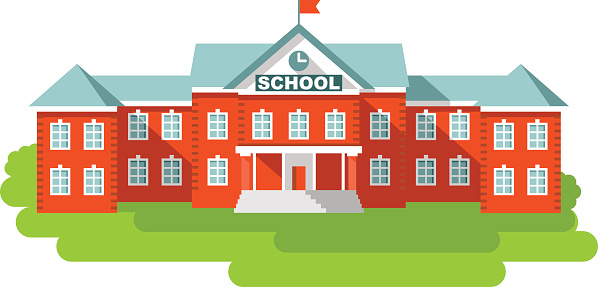Recognizing the Importance of Institutions in Child Growth and Community Growth
Institutions' interaction with regional neighborhoods through service-learning initiatives strengthens the bond between family members and instructional establishments. This symbiotic connection underscores the relevance of schools in nurturing active citizenship and long-lasting understanding practices.
Academic Achievement
Academic accomplishment functions as a keystone of child development, giving the structure upon which future learning and success are constructed. Institutions play an essential function in fostering this academic growth, offering organized atmospheres where youngsters can get essential expertise and cognitive skills. Standardized curricula ensure that pupils gain proficiency in core subjects such as maths, science, and language arts, which are critical for both college and specialist chances.
Along with imparting fundamental scholastic skills, colleges additionally grow important thinking, analytic capacities, and intellectual inquisitiveness. These cognitive proficiencies are essential for browsing intricate real-world situations and adjusting to the ever-evolving needs of the modern-day work environment. Educators, as facilitators of learning, use varied pedagogical methods to deal with varied learning designs, thereby taking full advantage of private pupil potential.
Additionally, scholastic success is carefully connected to self-esteem and motivation. Youngsters who experience scholastic success are most likely to develop a positive self-concept and a long-lasting enthusiasm for knowing. Institutions additionally offer various sources, such as libraries and innovation, which additionally improve the educational experience and prepare students for a technically advanced culture.
Social Ability Growth
Beyond academic accomplishment, the role of institutions in social skill advancement is vital. Schools function as a main location for kids to learn and exercise crucial social abilities such as communication, conflict, and cooperation resolution. In the organized atmosphere of a classroom, trainees engage with peers, instructors, and other college staff, offering countless opportunities to establish these important capabilities.
Effective social ability growth in institutions is assisted in with group activities, joint tasks, and extracurricular programs. These communications help trainees understand social standards, construct compassion, and cultivate a feeling of neighborhood. For example, group tasks instruct students just how to collaborate in the direction of a typical objective, pay attention to various perspectives, and navigate disputes constructively.

The farming of social skills during academic year lays a structure for future personal and expert partnerships. Save Temecula Schools. As trainees mature, the capability to effectively interact and team up comes to be increasingly vital, emphasizing the school's vital duty in all natural kid growth
Direct Exposure to Variety
Direct exposure to variety in colleges is essential to promoting a comprehensive frame of mind and broadening trainees' point of views. Schools offer as a microcosm of the wider culture, and encountering diverse cultures, languages, and socioeconomic histories within this environment furnishes pupils with necessary abilities for navigating a significantly globalized globe. This exposure encourages empathy, reduces prejudices, and promotes mutual respect amongst peers.
Varied classrooms additionally improve social and cognitive growth. Research shows that trainees who communicate with peers from different histories show far better analytic abilities and creative thinking. They discover to value different point of views, which enhances classroom conversations and cultivates an extra vibrant understanding experience. This understanding of diversity prepares trainees for future offices that worth modern skills.

Neighborhood Interaction
The benefits of varied class extend beyond the school walls, cultivating a solid feeling of area involvement amongst trainees. By engaging with peers from numerous social, socioeconomic, and ethnic backgrounds, students gain a wider point of view and an admiration for variety. This exposure motivates them to end up being active residents who agree to contribute positively to their communities.
Schools that emphasize area engagement frequently integrate service-learning projects, which allow students to address real-world troubles while using scholastic abilities. These jobs not only enhance students' understanding of their coursework yet additionally infuse a sense of obligation and empathy. Partnerships in between colleges and regional organizations provide trainees with possibilities to participate discover here in neighborhood occasions, even more solidifying their function as aggressive neighborhood participants - Save Temecula Schools.
In addition, parental and area participation in colleges reinforces the bond between educational institutions and the neighborhoods they offer. They develop a collective atmosphere that profits all stakeholders when institutions open their doors to area events, workshops, and volunteer chances. This mutual assistance system ensures that trainees receive holistic this website advancement, preparing them to come to be all-around people who value and contribute to their communities. With these initiatives, colleges play a crucial role in nurturing area engagement and promoting societal growth.
Lifelong Understanding Habits
Establishing long-lasting understanding habits is important for a kid's constant development and adaptability in an ever-changing globe. Schools play a pivotal role in instilling these routines by creating an atmosphere that promotes interest, essential reasoning, and a love for knowledge. Through extracurricular tasks and varied educational programs, instructors urge trainees to discover numerous topics, assess details seriously, and use their finding out to real-world situations.

In addition, schools offer an organized setting where children can establish self-control and time management skills, both of which are critical for continual learning. By highlighting the relevance of establishing objectives, reviewing progress, and adapting methods, universities prepare students to browse the intricacies of grown-up life, ensuring they remain long-lasting learners and factors to culture.
Verdict
In verdict, colleges are necessary in promoting child development and area development by offering environments helpful to scholastic accomplishment, social skill growth, and direct exposure to diversity. Inevitably, institutions cultivate lifelong learning routines, outfitting people with the necessary expertise and skills to add favorably to society.
In the organized atmosphere of a class, trainees connect with peers, instructors, and various other institution staff, providing numerous chances to develop these essential capabilities.
In essence, direct exposure to diversity within colleges not only our website improves private students however likewise strengthens the social textile of the neighborhood as a whole.
The advantages of varied class extend beyond the institution wall surfaces, fostering a strong feeling of neighborhood interaction amongst pupils.Schools that highlight neighborhood involvement usually integrate service-learning tasks, which enable students to deal with real-world issues while applying scholastic skills. Partnerships between institutions and local companies offer trainees with possibilities to get involved in community events, even more strengthening their role as positive neighborhood participants.
Comments on “Discover the Conveniences of Campaigning For: Save Temecula Schools”